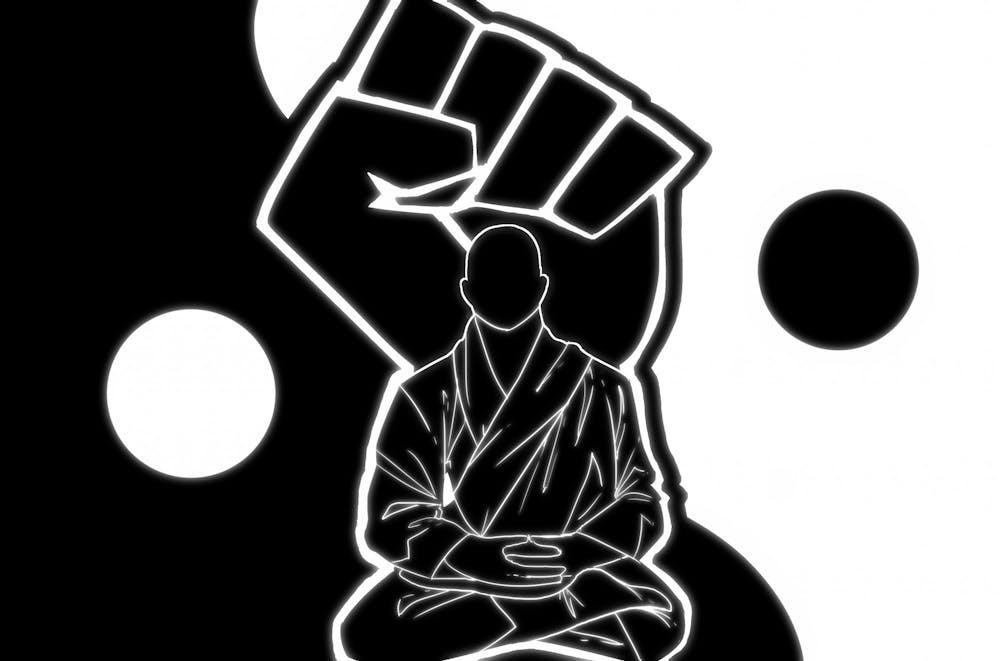The past few weeks have been filled with endless turmoil — the good kind of turmoil; the kind that’s necessary; the kind that brings about powerful and necessary change — but nonetheless, turmoil.
The death of George Floyd, as a tragic result of police brutality, has brought weeks of protests and a national call to attention for how our police forces act. The ensuing media has been grotesque, showing reports of lynchings, riots and protesters being beaten by police officers. For many, this has been difficult to watch, regardless of the color of our skin or where we stand on the political spectrum.
These times are trying, and black communities need the change now more than ever. But as the protests and national crisis continue, how are we as students to prevent ourselves from getting burnt out? How do we prevent our pent-up feelings from getting the better of ourselves and pulling back when we should be doing as much as we can?
The answer is mindfulness.
What comes first is to accept that these feelings are natural and true — that even though we may not be experiencing this media coverage firsthand, it can often feel as though we do. That’s how empathy works as a fundamental component of the human psyche.
As humans, we have a natural habit of pushing away our experiences, and trying to be what we are not. For an unrelated example, we may have a day where we are tired, grumpy, and dragging our feet just to get through our daily routine. Most people would have the natural response to simply try to pretend that what we are feeling isn’t reality. We turn a blind eye to what’s going on inside and around us, and inevitably these negative emotions persist.
The power of mindfulness is the ability to learn that negative emotions are not bad in and of themselves. It’s truly what we make of them. In the same way that positive emotions have a tendency to tell us when things are right, negative emotions have this intrinsic power to tell us when things are wrong.
Mindfulness tells us that instead of avoiding these negative emotions, we should lean in to them. We should remember these times where history came to a crux and people began demanding change. We should ask ourselves why do we feel these emotional responses, and what can we do about it?
In being present with our emotions, we naturally find not only that our emotional responses are shorter-lived, but also that we learn so much more about ourselves and where our moral compasses lie. It is only through deep pain and suffering that the true nature of the human condition reveals itself; only through tremendous torment and abject misery can we truly see the nature of the kind heart, and the power of compassion. And what do we learn from those questions in these times?
That change is powerful. That change is needed. And change needs to come now.
Reach the reporter at cbeal4@asu.edu and follow @beal_camden on Twitter.
Like The State Press on Facebook and follow @statepress on Twitter.




